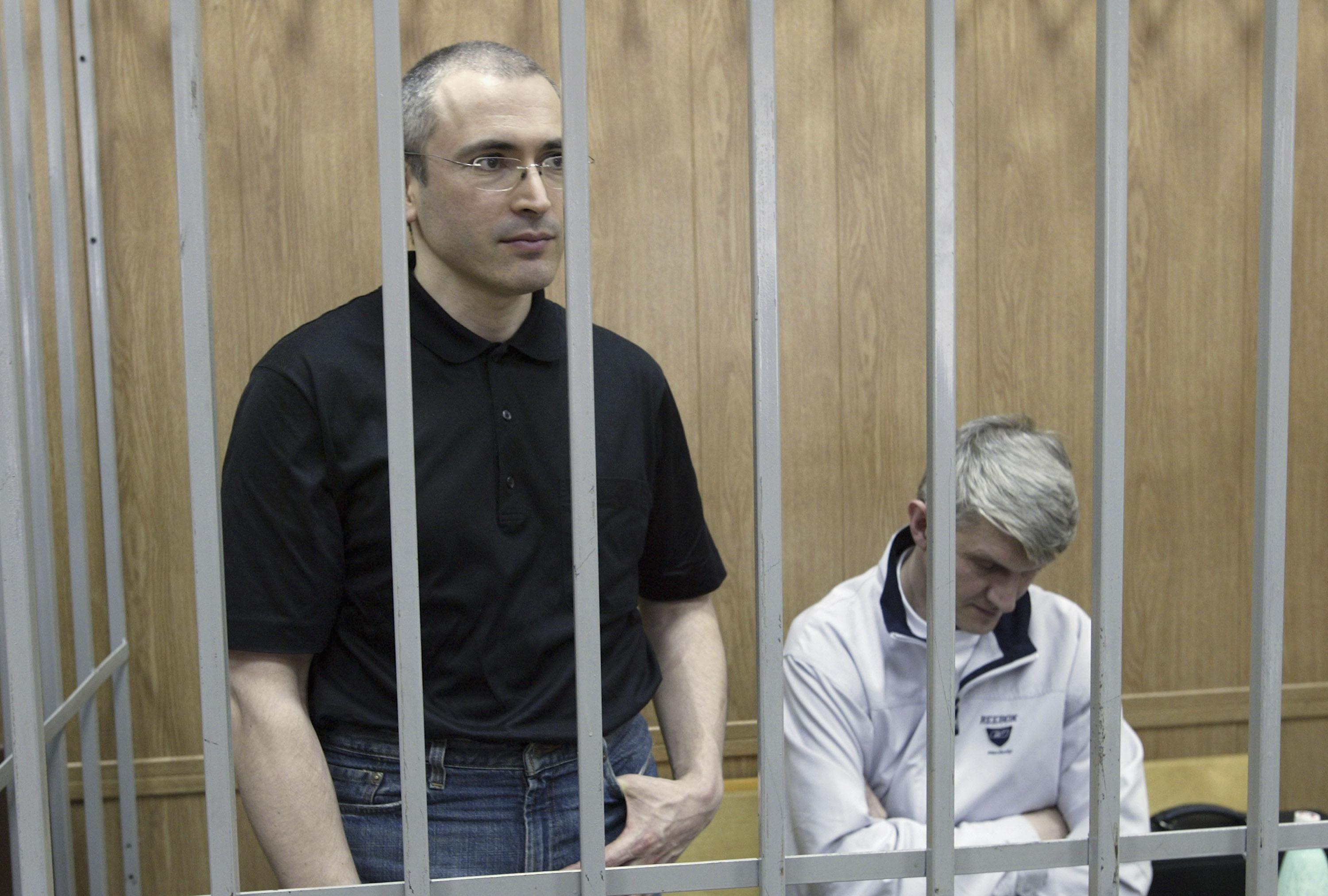When it was reported yesterday that Russian lawmakers had approved an amnesty bill that could lead to the release of at least 20,000 people including such high-profile prisoners as the members of Pussy Riot and the approximately 30 recently jailed Greenpeace activists, it seemed like a shrewd PR move ahead of the increasingly controversial Sochi Olympics. While both cases had garnered international attention, it’s not like the stakes for the Russian government were particularly high in either one.
The news that President Vladimir Putin plans to pardon jailed Yukos tycoon Mikhail Khodorkovsky is more surprising. This one is personal for the president. Khodorkovsky—once Russia’s richest man—was jailed in 2003 on tax evasion and embezzlement charges, though it was widely assumed that the real reason was his funding of opposition groups and intention to enter Russian politics. After a ludicrously bungled trial in 2010, his sentence was extended to 2017. Until recently, it was widely assumed among many Russia watchers that Khodorkovsky would remain in his Arctic penal colony as long as Putin remained in power.
Not surprisingly, even the pardon has provoked bickering between the two sides. Putin has stated that this is a humanitarian pardon issued due to the health of Khodorkovsky’s mother. Putin Press Secretary Dmitry Peskov took the opportunity to take one more dig at the jailed tycoon, saying, “A petition for a pardon has been submitted to the president. If he asks for a pardon, it means he admits his guilt.” The only thing is, Khodorkovsky’s lawyer claims that he “did not apply [for a pardon] and we have no information that anyone has applied on his behalf recently.”
To put it bluntly, while the international community has been pushing for Khodorkovsky’s release for a long time, this looks a lot more like a czarist decree than anything resembling the rule of law. It seems like a high-stakes gamble for the Kremlin, however. His years in prison have transformed Khodorkovsky’s image from just another post-Soviet robber baron living off the ill-gotten gains of the 1990s into a prisoner of conscience and eloquent regime critic. He’s Russia’s best-known political prisoner by a long shot, only 13 percent of Russians believe the charges against him are real, and in the capital at least, the majority of people favor his release.
Putin has managed to consistently outfox and divide his opponents in the past, but this releases raises the stakes significantly. It seems like a risky move for some good pre-Olympic PR.
